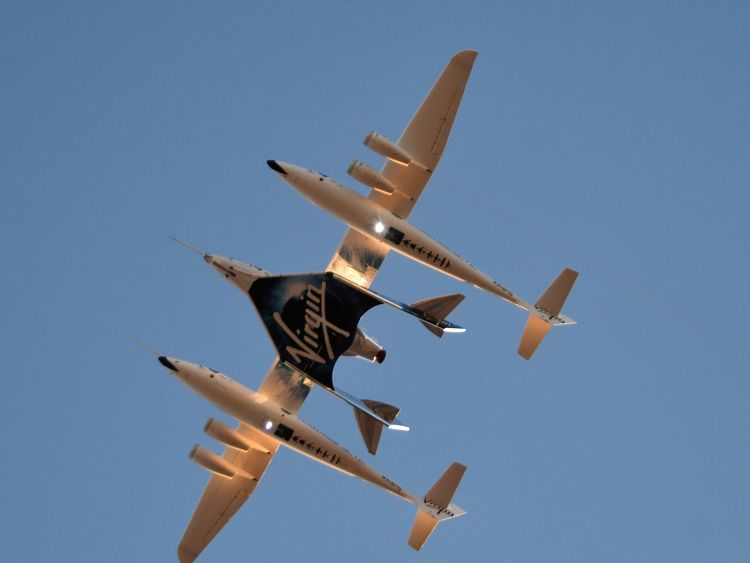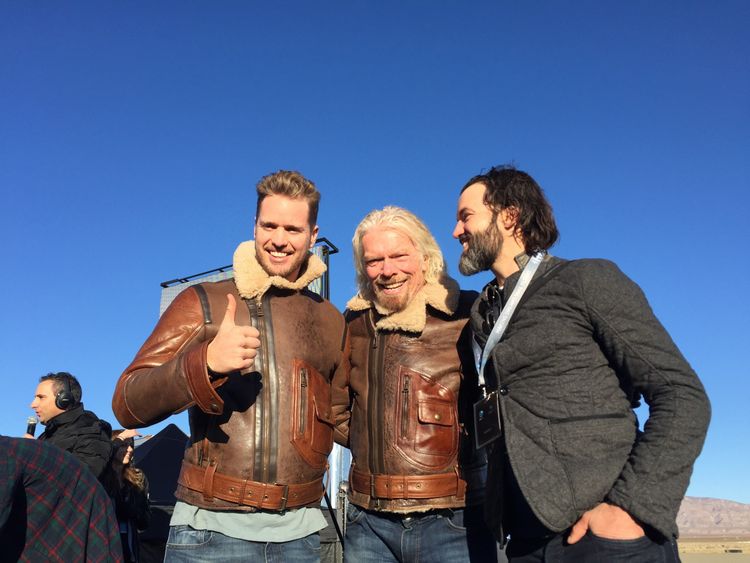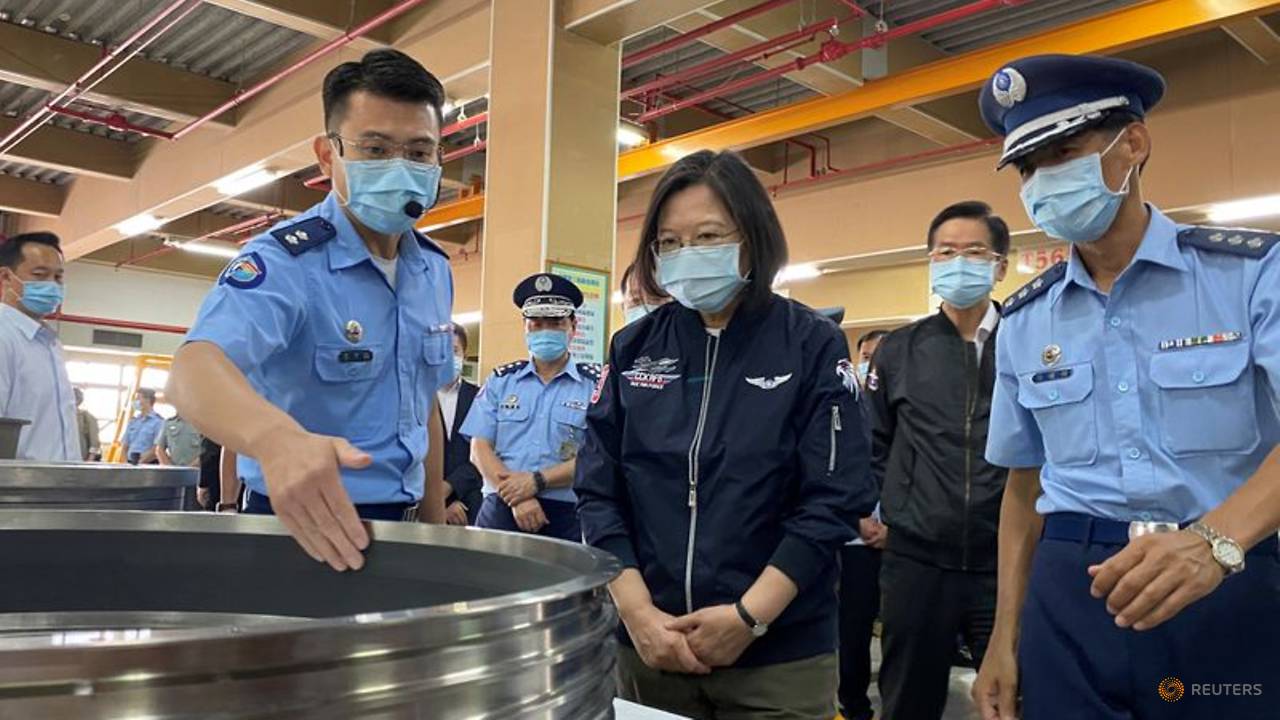Virgin Galactic has successfully launched a tourism rocket ship into space for the first time – with Sir Richard Branson hoping a commercial flight will take place by March 2019.
The Virgin Space Ship (VSS) Unity took off from the Mojave test centre in California and climbed 51 miles (82km) before beginning its descent early on Thursday.
The company considers the altitude to be the boundary of space, which contradicts a long-held view that it is reached at 62 miles (100km).
Virgin Galactic CEO George Whitesides noted that recent research favours the lower altitude.
VSS Unity was released from carrier aircraft WhiteKnightTwo, which ignited its rocket engine and released the plane at an altitude of around 8 miles.
Two test pilots Mark "Forger" Stucky and former NASA astronaut Rick "CJ" Sturckow then hurtled the craft upward and out of sight.
The rocket plane re-entered the atmosphere at 2.5 times the speed of sound and landed a few minutes later.

Virgin's billionaire founder Sir Richard cried, high-fived and hugged spectators, as hundreds of the firm's employees and family members watched the launch.
One of the pilots handed Sir Richard a small Earth stress ball when the two hugged after the space ship landed safely following about an hour's journey.
The billionaire said he aimed for a commercial space flight with passengers, including himself, as early as March next year.

He said: "Today we have shown Virgin Galactic can open space to the world."
Sir Richard added: "Space is Virgin territory!"
Mission official Enrico Palermo said: "We made it to space!"
Sir Richard is battling other billionaire-backed ventures to offer space flights to tourists, including one from Amazon founder Jeff Bezos' Blue Origin.
The VSS Unity is a SpaceShipTwo air-launched rocket plane that has been designed specifically for commercial use.
The successful flight is significant progress toward the start of commercial flights that Virgin Galactic promised more than a decade ago.
More from Science & Tech
Virgin Galactic's first experimental spacecraft broke apart during a 2014 test flight and killed the co-pilot.
More than 600 people have committed up to $250,000 (roughly £198,000) for rides that include several minutes of weightlessness and a view of the Earth far below.
Virgin Galactic has successfully launched a tourism rocket ship into space for the first time – with Sir Richard Branson hoping a commercial flight will take place by March 2019.
The Virgin Space Ship (VSS) Unity took off from the Mojave test centre in California and climbed 51 miles (82km) before beginning its descent early on Thursday.
The company considers the altitude to be the boundary of space, which contradicts a long-held view that it is reached at 62 miles (100km).
Virgin Galactic CEO George Whitesides noted that recent research favours the lower altitude.
VSS Unity was released from carrier aircraft WhiteKnightTwo, which ignited its rocket engine and released the plane at an altitude of around 8 miles.
Two test pilots Mark "Forger" Stucky and former NASA astronaut Rick "CJ" Sturckow then hurtled the craft upward and out of sight.
The rocket plane re-entered the atmosphere at 2.5 times the speed of sound and landed a few minutes later.

Virgin's billionaire founder Sir Richard cried, high-fived and hugged spectators, as hundreds of the firm's employees and family members watched the launch.
One of the pilots handed Sir Richard a small Earth stress ball when the two hugged after the space ship landed safely following about an hour's journey.
The billionaire said he aimed for a commercial space flight with passengers, including himself, as early as March next year.

He said: "Today we have shown Virgin Galactic can open space to the world."
Sir Richard added: "Space is Virgin territory!"
Mission official Enrico Palermo said: "We made it to space!"
Sir Richard is battling other billionaire-backed ventures to offer space flights to tourists, including one from Amazon founder Jeff Bezos' Blue Origin.
The VSS Unity is a SpaceShipTwo air-launched rocket plane that has been designed specifically for commercial use.
The successful flight is significant progress toward the start of commercial flights that Virgin Galactic promised more than a decade ago.
More from Science & Tech
Virgin Galactic's first experimental spacecraft broke apart during a 2014 test flight and killed the co-pilot.
More than 600 people have committed up to $250,000 (roughly £198,000) for rides that include several minutes of weightlessness and a view of the Earth far below.












